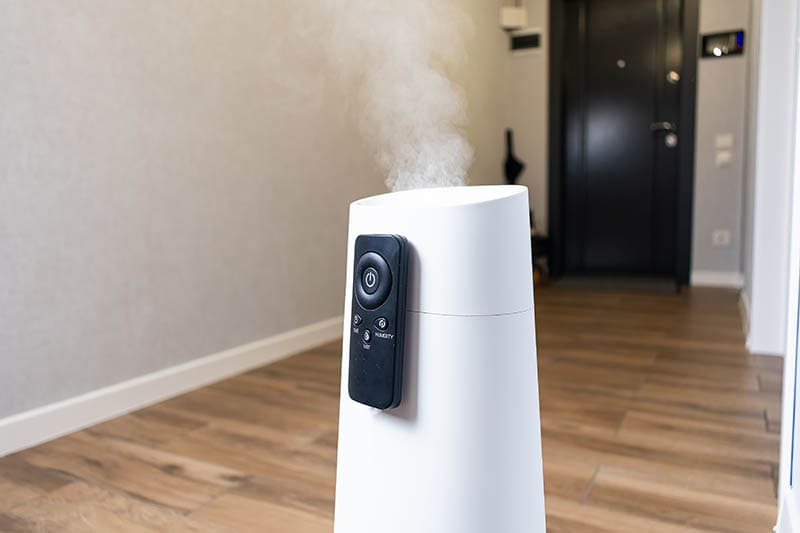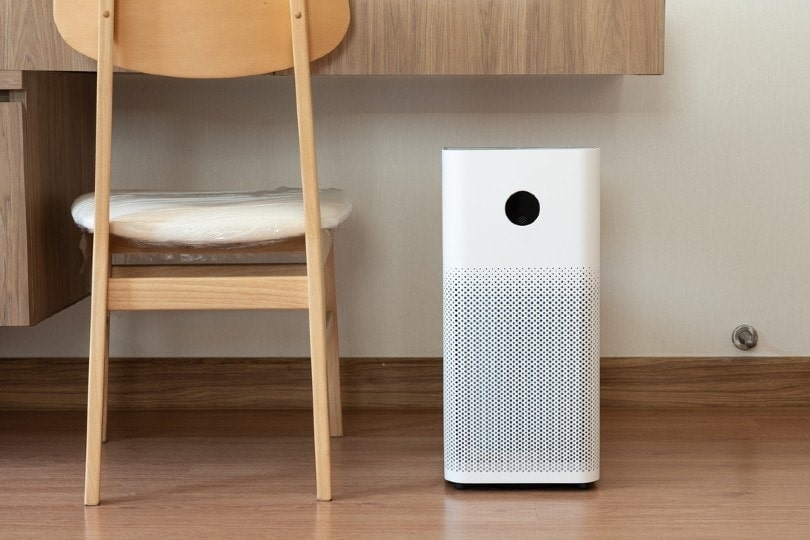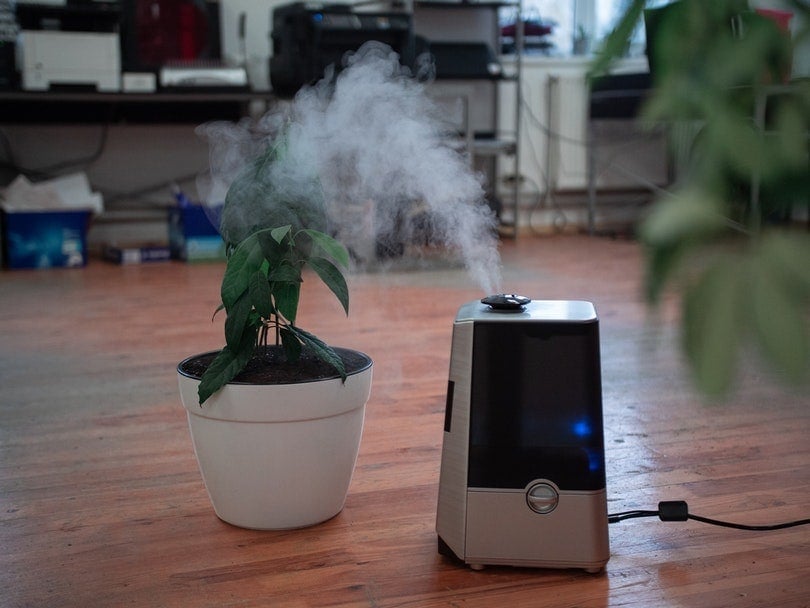How Much Electricity Does an Air Purifier Use? Facts & FAQ
-

- Last updated:

An air purifier uses a fan to draw air in and then passes it through a filter. Clean air is passed out of the purifier, therefore replacing the dirty or contaminated air it took in. The purifier repeats the process, continuously improving the overall quality of the air.
It’s worth considering the amount of electricity a purifier uses. Some people run air purifiers throughout the day and night, so the cost can add up, although the actual amount of electricity used does depend on the power of the purifier, its efficiency, and how often and for how long you run the device.
Expect anywhere between 10–100 watts of usage, with 50 being around a typical usage level. This is about the same as a cell phone charger and less, even, than a traditional incandescent light bulb.
Air Purifier Electricity Consumption
You should buy an air purifier that matches the size of the room it will be used in. If yours is rated for a smaller room than it is being used in, it won’t be able to clean the air efficiently, even if you leave it running all day and night. If it is too large a purifier for your room, it will be running unnecessarily and will be inefficiently using electricity.
Although some purifiers give a typical or maximum room size, others are rated as small, medium, or large.
- A small purifier is suitable for rooms up to 200 square feet.
- Medium air purifiers are best for rooms between 200–400 square feet.
- A large air purifier is suitable for rooms between 400–1,500 square feet.
You can also get whole-house air purifiers that are installed as part of your HVAC system and aim to clear the air in every room. Most experts recommend that a purifier is run constantly, rather than when you notice a problem.
Assuming your air purifier is running at 50 watts, this means it is using 50 watts per hour or 1,200 watts per day, which is 1.2 kilowatts. Over a month, your purifier would use about 36 kilowatt-hours or kWh. Assuming a cost of 15 cents per kilowatt hour, you would be paying approximately $5.40 per month to run your air purifier all day and night, every day and night.
It is also worth noting that most air purifiers give their maximum wattage rating, and the machines rarely reach this maximum, especially if you don’t run the purifier at full power all the time. Your machine might be a 50-watt air purifier but only uses 30 watts.
Purifiers are available with a power rating of less than 10 watts, while whole-house systems would run at more than 100 watts, but most average and even some large purifiers are 50-watt models. Therefore, this is roughly the amount of power you should be expecting to use.
How Does an Air Purifier Compare to Other Appliances?

With electricity prices fluctuating over the past few years, it is understandable to be concerned with power consumption, but a decent purifier uses very little power, even when compared to other appliances in the home.
| Appliance | Power Usage |
| Cell Phone Charger | 33W |
| Air Purifier | 50W |
| Television | 180W |
| Fridge | 200W |
| Washing Machine | 3,000W |
| Air Conditioner | 3,300W |
It is worth noting that none of these other devices run for 24 hours a day. A cell phone charger might only be used for 1–2 hours, for example, but a television can easily run for 6 hours a day in a family home, which means that running your air purifier 24 hours a day will use less power than your TV under normal consumption.
How Long Should You Run an Air Purifier a Day?
Generally, experts agree that air purifiers should run for 24 hours a day rather than when you can sense or detect some kind of allergen or pollutant. The purifier doesn’t clean all the air in a single pass, so it needs to be left on to remove as many impurities as possible.
However, some purifiers come with intelligent settings. They can determine when allergens are present and turn the speed of the fan and, therefore, their power consumption, up and down to meet the needs in that room at that time.
Should I Sleep With An Air Purifier On?

It is safe to sleep with an air purifier on, and because they help remove allergens and clean the air, they can promote a better night’s sleep especially if you suffer from allergies or find it difficult to breathe when in bed.
Where Should I Place My Air Purifier?
The air around the air purifier will generally be purer than anywhere else in the room. It is best to put the purifier somewhere near where you sit or lay down. It can be placed near the couch in the living room or near your bed in the bedroom to be at its most effective.
What Uses the Most Electricity in a Home?
It really does depend on your home and your appliance usage patterns. If you have an air conditioning or HVAC system and run it regularly or permanently, this is likely to be the biggest drain on electricity.
A heating and water heating system will also take a lot of electricity, especially during the colder months, but when it comes to individual appliances, the washing machine is a major consumer.
Do Dehumidifiers Use a Lot of Electricity?
Dehumidifiers are a little different from air purifiers. They do not usually run 24 hours a day throughout the year, and they do have more electrical components and parts, which means that they have higher electricity consumption per hour used.
Although it depends on the make, model, and even the setting of the dehumidifier, one can range from a tiny 25-watt model to a substantial 500-watt model, with most coming in around the middle or 250 watts.
Conclusion
Air Purifiers take allergen and pollen-filled air, clean it by passing it through several filters, and then pass clean air back out into the room. Although you can get those that use less and some that use more power, most purifiers have a maximum peak output of 50 watts.
Running a purifier all day, every day, and using approximate current prices of electricity, you can expect to pay a little over $5 per month to run an air purifier and ensure you have cleaner air in your home.
- https://housefresh.com/how-much-energy-does-an-air-purifier-use/
- https://www.airpurifierfirst.com/blog/how-much-electricity-do-air-purifiers-use/
- https://airfuji.com/how-much-does-it-cost-to-run-an-air-purifier/
- https://homeairguides.com/how-to-choose-the-right-size-for-an-air-purifier/
- https://learnmetrics.com/how-much-electricity-do-air-purifiers-use/
Featured Image Credit: Vladyslav Lehir, Shutterstock
Contents


